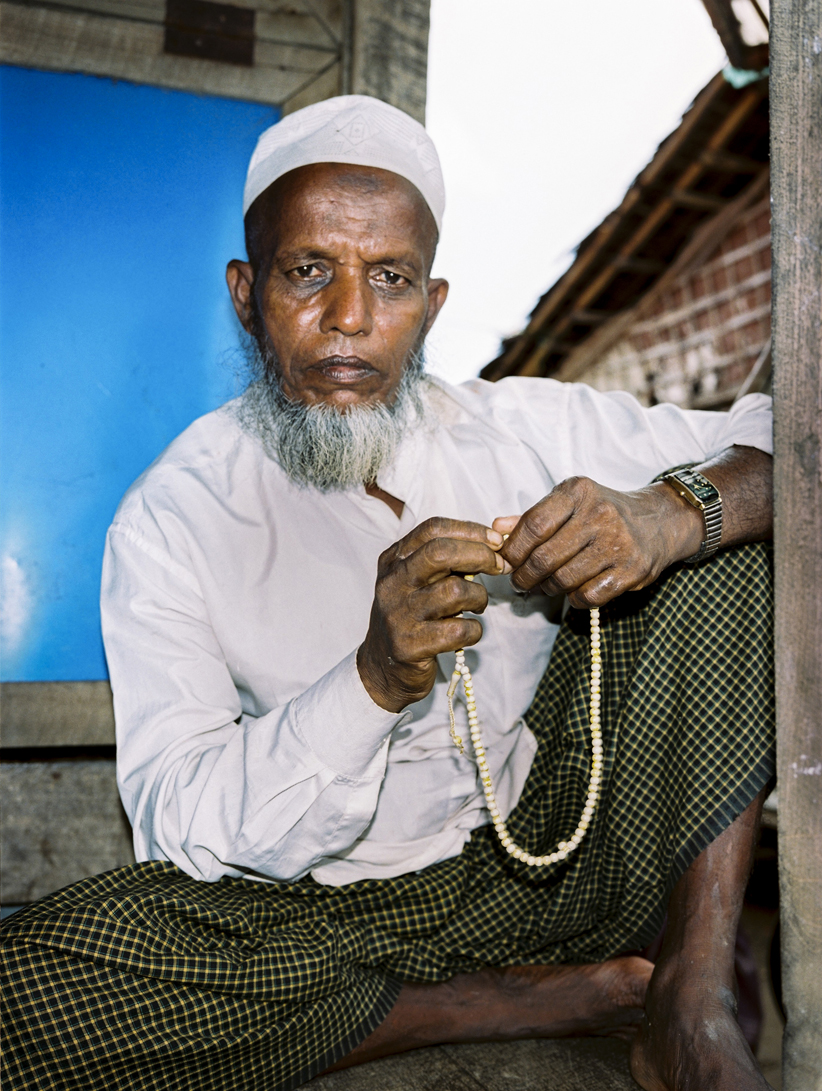
A Rohingya woman and child work in a field within a displaced persons camp in Myanmar. PIC: Ali MC




According to the United Nations, the human rights violations against the Rohingya people — one of the most persecuted minorities in the world — could be considered “crimes against humanity”.
But Suu Kyi’s flat rejection of allegations of ethnic cleansing in an interview with the BBC has brought swift condemnation.

“To deny ethnic cleansing . . . is both disingenuous and dangerous,” says Ali MC, who has traveled extensively through the region, documenting the lives of displaced Rohingyas.
“There is strong evidence from international bodies that rape, indiscriminate killing, forced removals and village burning has occurred against Rohingya communities and families in western Myanmar . . .
“Messages that have been sent to me demonstrate that Rohingya men and teenage boys have been targeted in the attacks. I, myself, have received numerous messages and photographs of Rohingya refugees newly arrived in Bangladesh, who have seen their husbands and sons killed and their young daughters raped.
“I have seen photos of children with burn marks, machete and gunshot wounds . . . All of this clearly points to a concerted regime of ethnic cleansing.”

In a bid to draw attention to the plight of the ethnic minority, Ali MC, whose full name is Alister McKeich, took a range of photographs of the people living in Rakhine state and in Bangladesh’s Leda refugee camp for internally displaced people.
An exhibition of his photographs, Refugee Crisis in Colour, is on display in the Fitzroy Library, Melbourne, until May 26. Ali MC also plans a photo workshop to raise funds for the refugees.
“I want to spread awareness about what is happening to Rohingyas in Burma and Bangladesh,” he says. “It is a country very close to Australian people but we don’t understand much about the whole situation, and about them, and that is sad.”
But what makes Ali MC’s photographs unique is that they seek to capture the ethnic group through a lens of “self-preservation and dignity”.
“I did not want to portray them destitute and impoverished like you often see in the media.”
His photographs show the Rohingyas trying to make normal of the abnormal. The camps are invaded routinely by Burmese militants and the army, with women raped, men and children beaten.
But the camps are also the refugees’ shelter and livelihood, and despite living in leaky shacks without sanitisation, the Rohingyas are determined to make some sense of their predicament.
Ali MC offers, as an example, the story behind one of the 12 photos that he has selected for display.
“I was shooting a boy stricken with polio [who was] lying on the floor with the bare minimum clothes, covered in urine,” he says.
But he paused when the boy’s father indicated that he wanted to prop his son up for the photo. After numerous attempts, he succeeded, and Ali MC was finally able to get the shot. “Yes, the first photo was more graphic, but it is not about that,” he says.

It has been a year since Nobel Prize winner Suu Kyi took control as Prime Minister of Myanmar, but international criticism has grown over her inability to take a tougher stance over the atrocities against the Muslim minority. She is also facing a local backlash for the country’s economic stagnation.
“Her hands are tied,” Ali MC acknowledges. “The military still holds 50 per cent of government there.”
Thailand-based Australian journalist Alan Morison, who has reported courageously over several years on the plight of the Rohingya people, says Ali MC’s photographs highlight the difficult battle for survival that remains a daily constant for all Rohingya.

“They are marginalised and held captive in squalid ghettos, in many cases beyond the prying eyes of NGOs and journalists,” he tells The Citizen.
“There is no rational explanation for the refusal of most Buddhist Burmese to accept the Rohingya, who have been living in their country for generations,” Morison continues. “They may be Muslim but they have every right to citizenship.

“Only since 1982 have harsh changes turned them into a dispossessed minority. Whether or not Suu Kyi shares the racist attitude of the majority of Burmese, she remains the only hope for the Rohingya in a country where the military still dictates policy and where extreme nationalists still have far too much influence.”
Ali MC, who is also a musician and writer, is studying human law at the University of Melbourne, in a bid to be able to communicate better with people in power about social issues.
“Creativity on its own is great but having a legal background provides a language to express and communicate,” he says.
The exhibition, which will form part of the next month’s Melbourne human rights arts and film festival, is aiming to provide a platform for interaction between Australians and the migrant Rohingya population of Melbourne.
Ali MC says Australia is in a strong bargaining position to influence policy in Myanmar, given its multi-million dollar aid support. But Canberra was continuing to turn a blind eye to the atrocities in Burma.
“At grassroots level there is some community change within Australia towards the marginalised group; at government level, however, it seems to be going backward.”
► Refugee Crisis in Colour runs until May 26, at the Fitzroy Library.